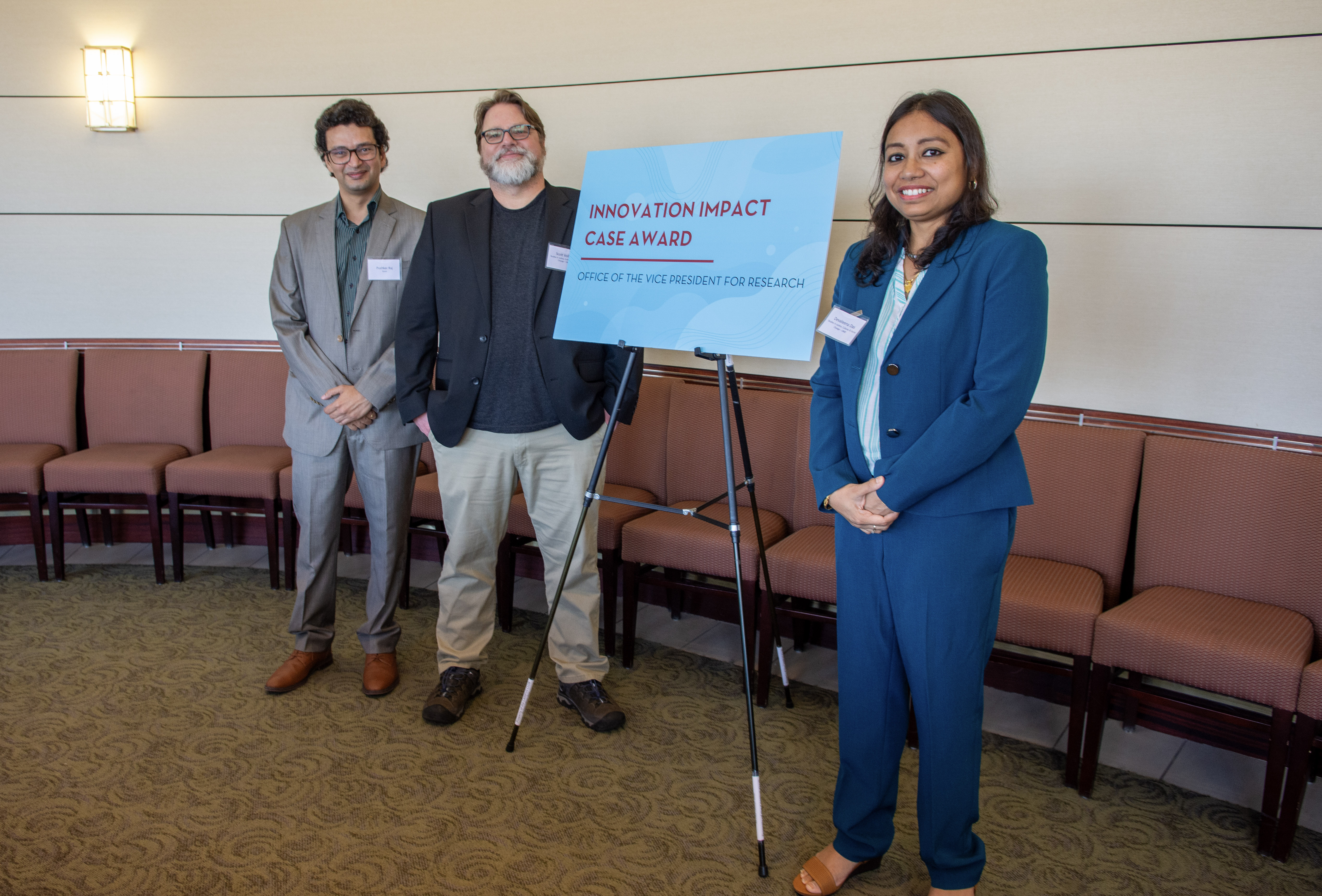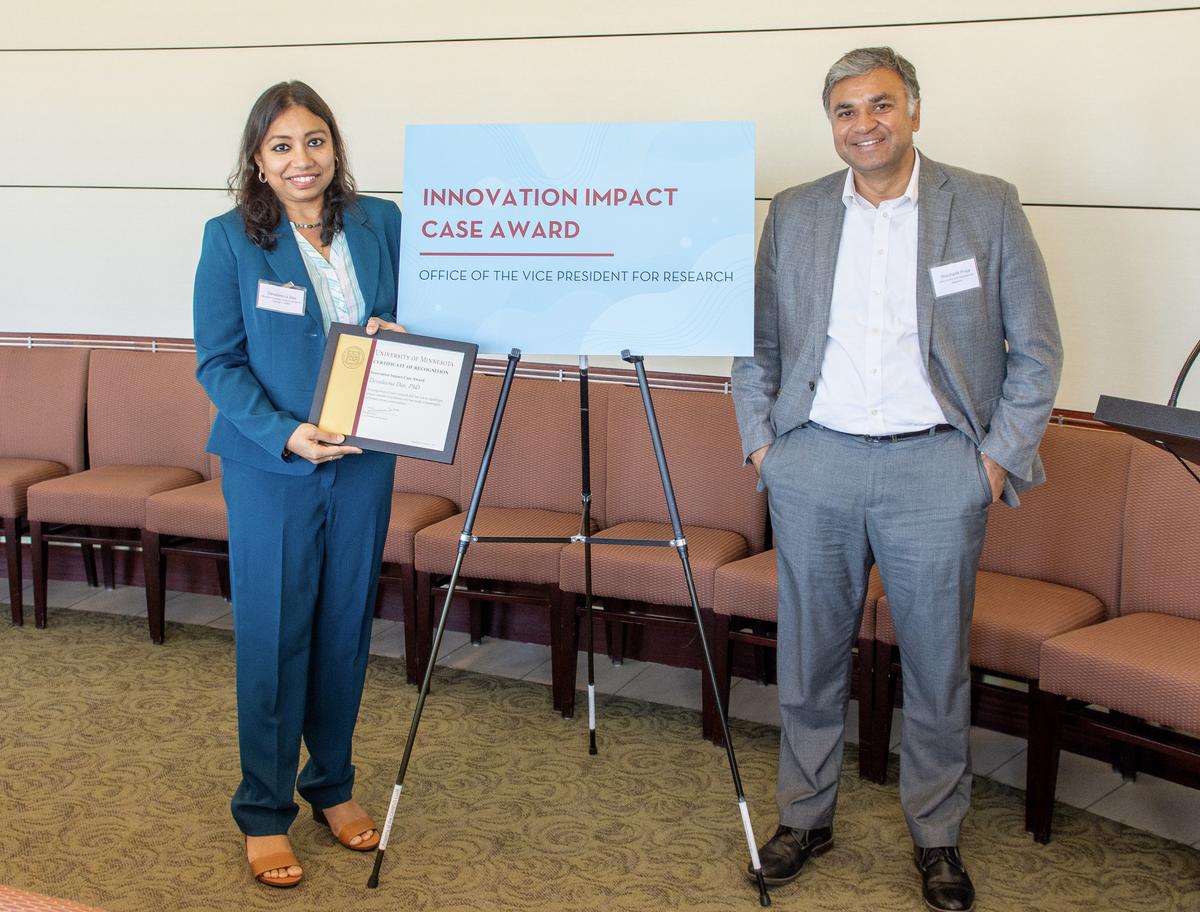The Office of the Vice President for Research (OVPR) has announced the recipients of the Innovation Impact Case Award, which recognizes University of Minnesota research that has had significant impact outside of academia.
“We’re incredibly proud of researchers like Devaleena Das and Sarah Huebner, who led teams looking into issues and providing solutions that make a meaningful difference in our communities,” said Shashank Priya, Vice President for Research. “Both winning projects and the honorable mention engaged the public to make our world a better, more responsive and more responsible place.”
The award winners and runner up were honored at a luncheon with VP Priya at the Campus Club on October 2.

Award Winners
The award and prize of $10,000 went to two researchers:
Devaleena Das, College of Arts, Humanities, and Social Sciences, University of Minnesota Duluth, for “Archiving Human Condition to Combat Pandemic-Misinformation.”
In response to the health-inequity crisis magnified by the pandemic in northern Minnesota, Devaleena Das led a research team that created an open-access digital archive of experiential covid stories called Stories of Wisdom from Bodies in Separation (SWaBS). This archive synthesized public health, humanities, and community engagement to combat pandemic misinformation, economically support furloughed individuals, and provide resources for epidemiologists and medical historians to inform future pandemic responses.
Read more: Tools of Humanities Shine a Powerful Light on Commonalities in Rural Minnesota.
Sarah Huebner, School of Physics and Astronomy, University of Minnesota Twin Cities, for “Citizen Science and Artificial Intelligence Combined to Conserve Earth’s Natural Resources.”
Sarah Huebner led the development of Snapshot Safari, a collaborative, cross-continental research and conservation network that engages thousands of citizen scientists and has collected over five years of continuous data, including 20 million images secured from camera traps, to date. This data is critically important during this time of extreme human-driven biodiversity loss as it charts baseline population levels and can track trends over time, leading to improved wildlife management practices, easier monitoring of threatened animal species, and better understanding of how changes in vegetation impact animal movement and behavior.
Read more: Harnessing Citizen Science to Help Large African Mammals.
Honorable Mention
Lucinda Johnson, Natural Resources Research Institute, University of Minnesota Duluth, for “Statewide Digital Atlas Provides Free and Easy Access to Mapped Data.”
Lucinda Johnson was the principal investigator behind the Minnesota Natural Resource Atlas, a free, online interactive mapping tool that makes spatial data accessible to everyone, regardless of digital mapping experience. The atlas is paired with more than 500 Minnesota-specific, multi-disciplinary data layers and co-developed with potential end-users to ensure content is relevant, appropriate, and easy-to-use. Approximately 130 unique users from across the state use the atlas each weekday to view spatial data, perform basic spatial analysis, share maps, broaden their understanding of our natural resources, and make better decisions.
